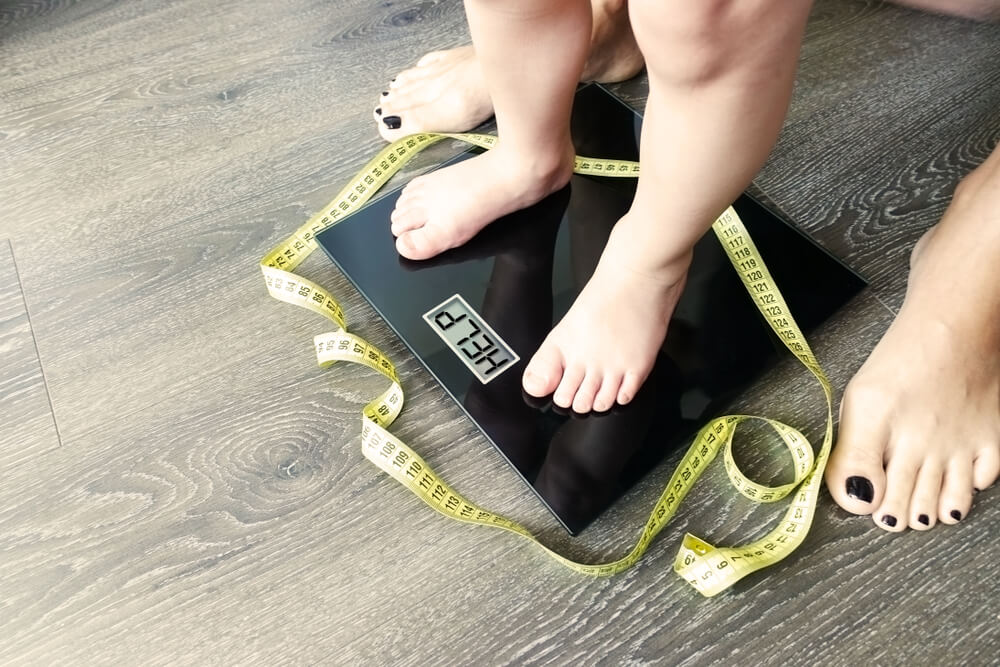Childhood obesity has become a significant concern in recent years, as it can lead to numerous health problems later in life. In today’s fast-paced world, where convenience food is readily available, children are more prone to develop unhealthy eating habits and sedentary lifestyles. Obesity is not just an aesthetic issue; it can lead to serious health problems and impact a child’s quality of life.
In this article, we will discuss what obesity in kids is, the health consequences of childhood obesity, what a BMI is, and how parents can help their overweight child. If necessary, keep in mind that the proper obesity treatment can make a world of difference for the affected child.
What Is Obesity in Kids?
Obesity in kids is defined as having an excess amount of body fat. Children who are obese are at a higher risk of developing health problems such as type 2 diabetes, heart disease, and sleep apnea. They may also experience low self-esteem and depression.
Childhood obesity is caused by a combination of genetic, environmental, and behavioral factors. Genetics play a role in determining a child’s body weight, but environmental factors such as unhealthy eating habits and lack of physical activity also play a significant role.
What Are the Health Consequences of Obesity During Childhood?

Obesity during childhood can have long-lasting effects on a child’s health. Children who are overweight or obese are more likely to develop health problems such as:
- Type 2 diabetes: Children who are overweight are at a higher risk of developing type 2 diabetes, a chronic condition that affects how the body processes blood sugar.
- Heart disease: Children who are overweight or obese are at a higher risk of developing heart disease, a condition that affects the heart and blood vessels.
- Sleep apnea: Children who are overweight are at a higher risk of developing sleep apnea, which causes a person to stop breathing for short periods during sleep.
- Joint problems: Children who are overweight are at a higher risk of developing joint problems, such as osteoarthritis, due to the extra pressure on their joints.
- Low self-esteem and depression: Children who are overweight may experience low self-esteem and depression due to social stigma and discrimination.
What Is a BMI?
BMI stands for Body Mass Index. It is a measure of body fat based on a person’s weight and height. BMI is an important tool for determining whether a person is at a healthy weight or not.
To calculate BMI, you divide the person’s weight in kilograms by their height, expressed in meters squared. For children and teens, BMI is calculated using sex- and age-specific percentiles.
How to Calculate Kids’ BMI and Interpret It?
Calculating kids’ BMI is similar to calculating it for adults. The formula for BMI is weight in kilograms divided by height in meters squared. However, since children’s bodies are still developing, their BMI needs to be interpreted differently.
To calculate children’s BMI, use a BMI calculator for pediatric purposes that considers age, sex, height, and weight. The calculator will give you a BMI score, which you can compare to age and sex-specific percentiles to determine whether the child is at a healthy weight.
A normal children’s weight chart, also known as a growth chart, is a tool used by pediatricians to track a child’s growth over time. This children’s weight chart is essential because it allows doctors to compare a child’s growth to that of other children of the same age and sex. This helps doctors identify potential growth problems and intervene early if necessary.
That said, if a child’s BMI is at or above the 85th percentile but lower than the 95th percentile, they are considered overweight. If a child’s BMI is at or over the 95th percentile, they are considered obese. The 50th percentile is considered the average weight for a child of a particular age and sex.
It’s important to remember that children’s BMI is not a perfect measurement of body fat. For example, a child who is very muscular may have a high BMI, even though they are not overweight or obese.
What Can Parents Do to Help Their Overweight Child?
If you are a parent of an overweight or obese child, there are several things you can do to help your child achieve a healthy weight.
- Encourage healthy eating habits: Provide your child with a variety of healthy foods, such as fruits, vegetables, lean protein, and whole grains. Urge them to eat slowly and listen to their body’s hunger and fullness cues. Limit their consumption of sugary snacks and drinks, as they can contribute to weight gain.
- Increase physical activity: Encourage your kid to engage in physical activity for at least 60 minutes each day. This can include activities such as playing outside, riding bikes, dancing, or swimming. Find activities that your child enjoys and make it a family affair by participating in them together.
- Limit screen time: Limit your child’s screen time to about two hours daily. Encourage them to engage in activities like playing outside or reading.
- Be a good role model: Children learn by example, so it’s important to model healthy habits yourself. Eat healthy foods, engage in physical activity, and limit your own screen time.
- Seek professional help: If you are concerned about your child’s weight, talk to their pediatrician. They can provide guidance on healthy eating and physical activity habits and refer you to a registered dietitian or other health professionals if necessary.
Obesity in Kids Should Be Properly Dealt With

Childhood obesity is a serious health concern that can lead to numerous health problems later in life. A BMI calculator in pediatrics is a valuable tool for determining whether a child is at a healthy weight. Still, it’s important to remember that it is not a perfect measurement of body fat. Parents can help their overweight child achieve a healthy weight by encouraging healthy eating habits, increasing physical activity, limiting screen time, being a good role model, and seeking professional help if necessary. By taking these steps, parents can help their children develop healthy habits that will benefit them throughout their lives.
Obesity is a severe health problem, but our experts at the PEMC of Florida have the knowledge and expertise to help. The first step at our center for children with obesity is a thorough evaluation of your child’s health. Hormonal instabilities and disorders are often at the root of people’s struggles to maintain a healthy weight. Assuming these conditions are identified, our weight specialists will advise you on the best course of action.
After that, they’ll address the underlying lifestyle problems contributing to weight management difficulties. At our pediatric obesity clinic, we can advise you on what foods are best for your kid. Your child’s doctor may recommend a specific portion measurement to aid in healthy weight loss. We can also aid in areas such as boosting exercise levels, identifying better food options, and cutting back on excessive consumption.
Obesity is a problem that can be solved if it runs in your family. Help your kid regain their health with the services of the Pediatric Endocrine and Metabolic Center of Florida. If you’d like to schedule an appointment, don’t hesitate to get in touch.


